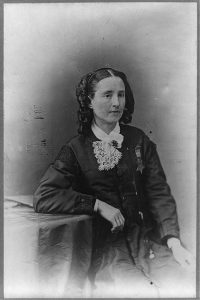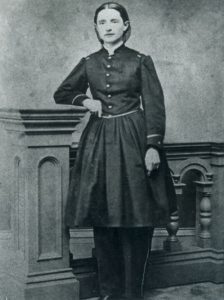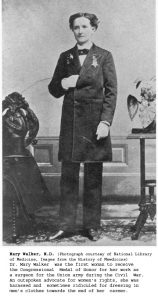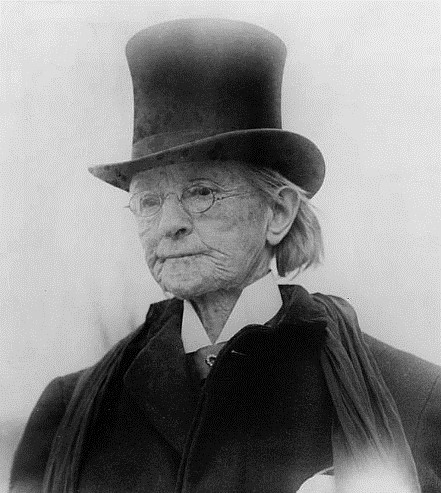Mary Walker
Dr. Mary Walker was an abolitionist, prohibitionist, prisoner of war, and surgeon.
Mary Walker was born on November 26, 1832 and raised in Oswego, NY. Her parents, Alvah and Vesta Walker, instilled progressive values in their children at a young age – they split domestic chores equally, sheltered freedom seekers on the Underground Railroad, and encouraged their five daughters to pursue professional educations and careers. To this end, Mary attended Syracuse Medical College, graduating in 1855 to become one of only a handful of female doctors in America.
She volunteered with the Union Army at the outbreak of the Civil War but was rejected because women were considered unfit for duty. So she served as a civilian surgeon during the war.
As a member of the Sanitation Commission, Dr. Walker tended the wounded in the aftermath of the battle of Fredericksburg. “At one time, when I was down to the Lacy House at Fredericksburg, after the famous battle there. When the wounded were brought from Fredericksburg to near this house, I was directed by the managing surgeons to take any cases I chose and dress them preparatory to sending them to Washington.” Dr. Walker wrote of some of the more gruesome cases she handled in Fredericksburg, but unfortunately, not much else is known of her time in Stafford.
She was captured and arrested as a spy by the Confederate army after crossing enemy lines to treat wounded civilians. She was held as a prisoner of war until she was later released in a prisoner exchange. She was awarded the Medal of Honor for her efforts to treat the wounded. She was the first female surgeon of the Union army and is still the only woman to ever receive the Medal of Honor. In 1917, Congress took back her medal. They said it should have only been given to soldiers in combat with the enemy. Dr. Walker refused to return her medal. In 1977 her medal was awarded back to her.
After the war, Dr. Walker was a writer and speaker supporting the women’s right to vote and temperance movement (not drinking alcoholic beverages).
Dr. Walker was infamous for not liking the traditional female clothes of her time. She strongly opposed women’s long skirts with numerous petticoats. She said they were not only uncomfortable, made it hard to move, but were unsanitary as they spread dust and dirt. As a young woman, she began wearing skirts with men’s trousers underneath. By 1861, her normal attire included trousers with suspenders under a knee-length dress.
She was inducted into the National Women’s Hall of Fame in 2000.
Famous quotes by Dr. Walker:
- “You must come to terms with the reality that nothing outside ourselves, be it people or things is actually responsible for our happiness.”
- “Let the generations know that women in uniform also guaranteed their freedom.”
- “You [men] are our protectors, is not true; for if you were, who would there be to protect us from?”
- “The greatest sorrows from which women suffer today are those physical, moral and mental ones, that are caused by their unhygienic manner of dressing! The want of the ballot is but a toy by comparison.”
- “I don’t wear men’s clothes, I wear my own clothes.”





